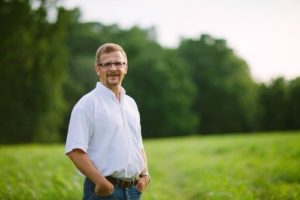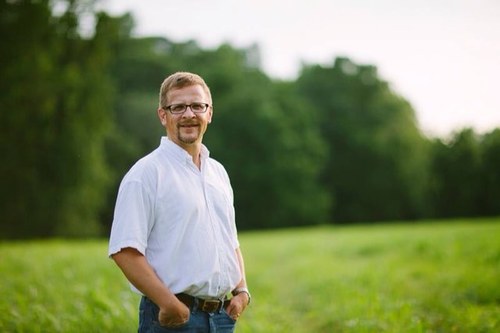Dr. Norman Wirzba, research professor of theology, ecology and rural life at Duke Divinity School, spoke at chapel on Sept. 26 on the topic of rest and the Sabbath, and he spoke again later that evening on sustainability.
“The Sabbath is not simply about finding balance in a crazy world,” Wirzba said. “Sabbath is about learning to experience life in its fullness and joy.”
While he could talk about Sabbath all day, Wirzba’s real passion is the combination of theology and food. He did not think he would end up where he is today.

He grew up thinking that he was going to be a farmer, but during the “get big or get out” of the ‘80s, where farmers were told to grow as much produce as possible or basically stop farming, he was pushed in another direction. However, he kept his love of farming, ecology and food and combined it with his love of theology.
His main focus is not on food and hunger, though, or whether Christians should be vegetarians or not. Rather, he sees food as much more important than that, because “food is basically a gift from God, and food is for the purpose of fellowship.”
Wirzba continued, “I want to explore with students how the way that they eat can become a way to think about their relationship with God, or how they’re eating can even be a witness to the kingdom of God.”
When asked how he thought sustainability and faith collide, Wirzba immediately went into how God’s love also has to be included in that question.
“If you read scripture, I think you’ll find a God that is constantly desiring to be with creatures and is a reflection of God’s love for all creatures,” he said. “We have gotten used to the idea that God loves people, and maybe only people — or worse, only certain kinds of people. What I think this does is really short circuits the expansiveness of God’s love.”
He then added, “The first thing that you want to pay attention to, for Christians, is that in the New Testament, early Christians made it very clear that the scope of God’s saving work applies to the whole world.”
Wirzba has some practical advice if you feel a conviction to help make a change.
“If students were to say, ‘We want to have a food service system in our school that sources locally grown food that has organic or whole food,’ the college would make a major statement in the community about what its values are and the college decides we want to have a food service that reflects our values and honor creation.”

